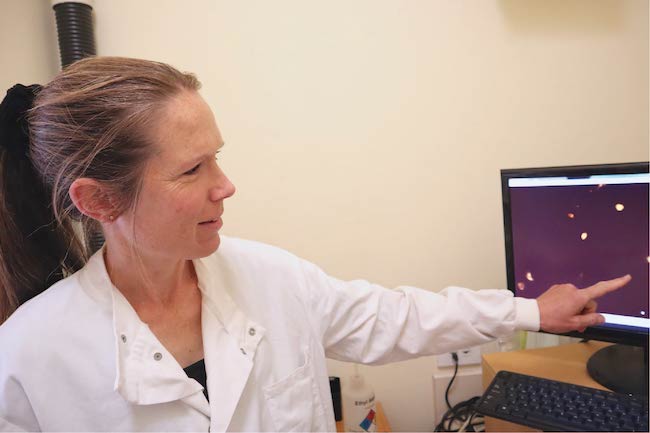Tuesday 15 December 2020 10:38am

Otago Biochemistry's Dr Anita Dunbier has just been awarded a $77,726 Cancer Research Trust project grant so that she and her research team can find better ways of treating metastatic breast cancer.
More than three quarters of the approximately 3000 patients diagnosed with breast cancer in New Zealand each year have hormone-receptor positive breast cancer.
The cancer cells in this kind of cancer are able to connect to the hormone oestrogen, which then tells them to grow and divide.
“Despite a relatively good prognosis, hormone-receptor positive disease still kills more women than any other type of breast cancer and improved therapies are urgently needed, particularly for metastatic disease,” Anita states.
Breast cancer is called metastatic or advanced when it spreads beyond the breast to another part of the body, such as the liver, brain, bones, or lungs.
Anita plans to test a combination of some existing treatments, including immune therapy and anti-oestrogen therapy.
Anti-oestrogen therapy stops oestrogen from connecting to hormone-receptor positive cancer cells, helping to slow cancer growth.
Anita explains, “The majority of breast cancers require the hormone oestrogen to grow. Drugs that act by preventing the production of oestrogen are the most effective treatment currently available for this type of cancer. However, these drugs do not work well for all patients.”
"Therapies that stimulate the immune system to attack tumours have revolutionised the treatment of some cancer types, particularly melanoma and lung cancer. However, if or how these treatments should be used to treat breast cancer is not well defined."
Anita's team aims to find out if these treatments work better together than they do alone to get rid of metastatic breast cancer tumours.
You can find out more about Anita's research here:
Dr Anita Dunbier's research profile
Photo: Anita explaining an image of fluorescently labelled cancer cells.